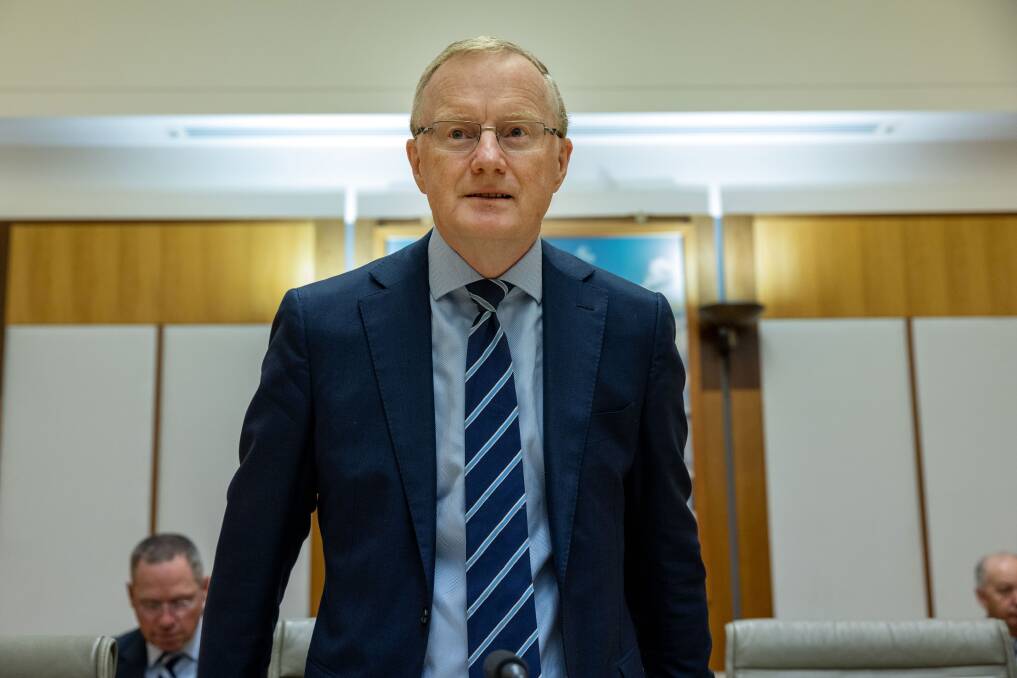The Reserve Bank has once again pushed struggling Australian families deeper into the hot zone of the war on inflation. The corporations who caused the war and profit from it, however, received another exemption from the frontline.
Subscribe now for unlimited access.
or signup to continue reading
In the RBA's statement, it made 10 references to wage growth, tight labour markets and rising unit labour costs. It made zero references to profits, margins, or mark-ups.
This goes to the great lie at the heart of our national inflation discussion. We are told that inflation "hurts all Australians". That we must unite in a shared national effort to wrestle prices to the ground.
But the fact is the current inflation has produced clear winners as well as clear losers. It's just the winners really don't want the losers to understand this.
Recently our Centre for Future Work analysed official national accounts data from the ABS, including income flows, output data, and changes in average economy-wide prices to find out what was driving inflation beyond the RBA's 2.5 per cent target.
We found that between the end of 2019 and September 2022 (the latest data at the time), it was higher corporate profits that accounted for 69 per cent of excess inflation. Labour costs accounted for 18 per cent and other stakeholders (including small business) the remainder.
Those higher prices are tied directly led to surging corporate profits, which reached their highest share of GDP ever in 2022. Now there's no doubt that putting up the price of things is inflationary.
And when those higher prices generate record profits, it seems to fair to question whether those in charge of raising prices might be throwing fuel on the inflation fire and benefiting from the heat created.

Meanwhile, wages - historically weak even before the pandemic - continued to lag. In the last two years, while consumer prices rose 12.5 per cent, average wages grew less than half as much - barely 6 per cent. In fact, the falling purchasing power of wages means we are now experiencing the biggest and fastest real wage cut in post-war history.
Last week's minimum wage increase, bitterly denounced by business leaders, barely prevents further real wage decline for the lowest-paid Australians. Yet business groups are blaming the minimum wage hike for yet another RBA rate hike, shifting attention away from profits.
Why is it that we regularly hear those at the top lecture workers and unions about how they must exercise wage restraint? Yet we never hear those same voices call on corporations to exercise a little profit restraint?
Our research has been met with fury from the business lobby, who were - perhaps predictably - not thrilled about our evidence that corporate profits were driving inflation. They even produced internal RBA memos which they said disproved our findings.
Now, to be fair, there are RBA and Treasury officials who disagree with our conclusions about the link between corporate profits and inflation. But they have not challenged our actual numbers.
Indeed, internal RBA memos replicated and confirmed our finding that wider corporate profit margins account for the lion's share of higher prices since 2019.
But these officials are nevertheless eager to defend the orthodoxy that denies soaring corporate profits are an inflation concern. They note profit jumps have been mostly driven by the energy and mining industries, which constitute a special case. It is true these industries have led the profit charge.
But this in turn reflects, in part, the massive price hikes paid by Australians for petrol, gas, and other resource-intensive products - the single biggest factor in the initial upsurge of inflation here. So we can't magically exclude the super-profitable mining sector from our analysis of inflation, nor our plan for tackling it.
READ MORE:
Defenders of the orthodoxy also claim profits outside of mining have not increased. But this is false: non-mining profits have been less spectacular than resources, but profit margins have widened significantly, also reinforcing inflation. Consumers are reminded of this every time they visit a supermarket, book an airline ticket, or try to rent an apartment.
The fact that corporate profits have shot up in line with inflation should surely pique the curiosity of our decision makers. We need a more honest, evidence-based examination of the causes and effects of inflation instead of relying on theories better suited to the 1970s.
The blame game over inflation will get more heated in the months ahead. Inflation is likely to ease, but workers will still want to repair the damage done to their purchasing power by securing wage gains in excess of inflation. By all rights they deserve that. And such wage rises need not cause further inflation if record high profit margins come back to earth.
Corporations, however, will want to sustain their record profits as long as possible. They want to keep wages down and the RBA seems determined to help. Buckle up.
- Jim Stanford is an economist and director of the Centre for Future Work at The Australia Institute, and the author of Profit-Price Spiral: The Truth About Australia's Inflation.

